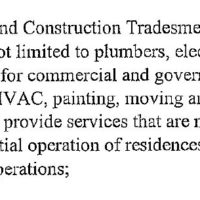There are no stay at home orders so as long as I follow these rules I’m ok – Right?
Therefore I am following the rules and doing my part.
Strategies to Slow the Spread of COVID-19 in Minnesota
Updated on March 20, 2020
To protect the public’s health and slow the rate of transmission of COVID-19, events as described below should be postponed or canceled across the state of Minnesota. MDH will continue to evaluate the situation and may recommend opening earlier or staying cancelled for longer. These events include those scheduled by communities and organizations but also by individuals. The following is intended to provide general guidance for mitigation strategies. Organizers or settings may need to take into consideration unique risks and make decisions that are protective of their communities.
CDC recommends postponing and canceling until further notice:
Events where 50 people or more would gather, including but not limited to:
Concerts.
Conferences.
Professional, college, and school performances or sporting events.
Festivals.
Parades.
Weddings.
Other types of assemblies.
COVID-19 Funeral and Mortuary Science Guidance (PDF)
Smaller events (fewer than 50 people) that are held in crowded auditoriums, rooms, or other venues that do not allow social distancing of 6 feet per person.
Events with more than 10 people where the majority of participants are at higher risk for severe illness from COVID-19, including gatherings such as those at:
Retirement facilities.
Assisted living facilities.
Developmental homes.
Support groups for people with health conditions.
Events of any size should only be continued if they can be carried out with adherence to guidelines for protecting vulnerable populations, hand hygiene, and social distancing. When feasible, organizers could modify events to be virtual.
More information is available at CDC: Get Your Mass Gatherings or Large Community Events Ready.
By order of the governor, beginning March 17 at 5 p.m., and continuing until March 27 at 5 p.m., the following places of public accommodation are closed to members of the public:
Restaurants, food courts, cafes, coffeehouses, and other places of public accommodation offering food or beverage for on-premises consumption, excluding institutional or in-house food cafeterias that serve residents, employees, and clients of businesses, child care facilities, hospitals, and longterm care facilities.
Bars, taverns, brew pubs, breweries, microbreweries, distilleries, wineries, tasting rooms, clubs, and other places of public accommodation offering alcoholic beverages for on-premises consumption.
Hookah bars, cigar bars, and vaping lounges offering their products for on-premises consumption.
Theaters, cinemas, indoor and outdoor performance venues, and museums.
Gymnasiums, fitness centers, recreation centers, indoor sports facilities, indoor exercise facilities, exercise studios, and spas.
Amusement parks, arcades, bingo halls, bowling alleys, indoor climbing facilities, skating rinks, trampoline parks, and other similar recreational or entertainment facilities.
Country clubs, golf clubs, boating or yacht clubs, sports or athletic clubs, and dining clubs.
Places of public accommodation are encouraged to offer food and beverage using delivery service, window service, walk-up service, drive-through service, or drive-up service, and to use precautions in doing so to mitigate the potential transmission of COVID-19, including social distancing.
In offering food or beverage, a place of public accommodation subject to this section may permit up to five members of the public at one time in the place of public accommodation for the purpose of picking up their food or beverage orders, so long as those individuals are at least 6 feet apart from one another while on premises.
The restrictions do not apply to any of the following:
Places of public accommodation that offer food and beverage not for on premises consumption, including grocery stores, markets, convenience stores, pharmacies, drug stores, and food pantries.
Health care facilities, child care facilities, residential care facilities, congregate care facilities, and juvenile justice facilities.
Crisis shelters, soup kitchens, or similar institutions.
Restaurants and food courts inside the secured zones of airports.
For all workplaces, it is important that employees assess themselves for symptoms regularly and go home right away if ill. All employees should practice careful and frequent hand hygiene, not touch their faces with unwashed hands and use respiratory etiquette.
Minnesota Employment and Economic Development (DEED):
Information and Resources for Workers
Executive Orders from Governor Walz
These orders further strengthen Minnesota’s response to the COVID-19 pandemic.
MDH recommends implementing the following mitigation strategies.
These have been adapted from CDC: Implementation of Mitigation Strategies for Communities with Local COVID-19 Transmission.

